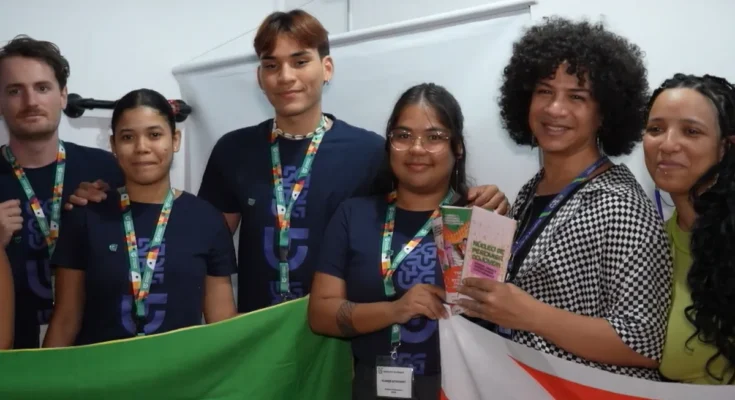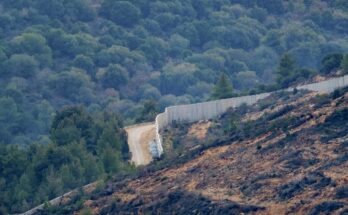In Brazil and in Guyana, the issues are the same: forest conservation, waste management, access to water and even climate justice. Around the round table, Guyanese students presented their local projects.Stéphanie Flores, University of Guyana student, spoke about the need to share: “We have similar problems, considering that we are all at Amazon. We want to create links, discuss and be able to exchange ideas. Maybe if they have a solution, they can share it with us and we share our solution with them. »
For Edson da Paixo, also a student in Guyana, we need to raise awareness: “There are still many students who are not involved and do not have this awareness. So we really hope that, when we come back, their mentality can change and we can take them with us. »
Share to build collectively
In front of them are members of the COJOVEM Institute, an Amazonian youth collaboration for sustainable development. They bring together young activists from indigenous, Afro-descendant and peripheral communities in Brazil. Their mission is to train, mobilize and give young people in the Amazon a voice in major environmental decisions, as explained by Isabela Nascimento, COJOVEM coordinator:
“We discussed a lot about the possibility of creating training for schools. The idea was to think together, as an Amazonian youth network, and collectively build content in Brazil, Bahrain and Guyana, to show how young people are facing the climate crisis and bring it to schools.”
This is a symbolic first meeting, but it holds promise for the future. For teaching staff, it is important to approach Guyana’s problems from a more international perspective, says Mabienne Batista França: “ This gives them broader insight to develop, meeting young people from all over the world, gathering academics around environmental prevention, the fight against inequality related to climate change and building a better future. »
This meeting was the first step for the University of Guyana. The long-term goal is the creation of an international student network based on joint initiatives for environmental protection.



